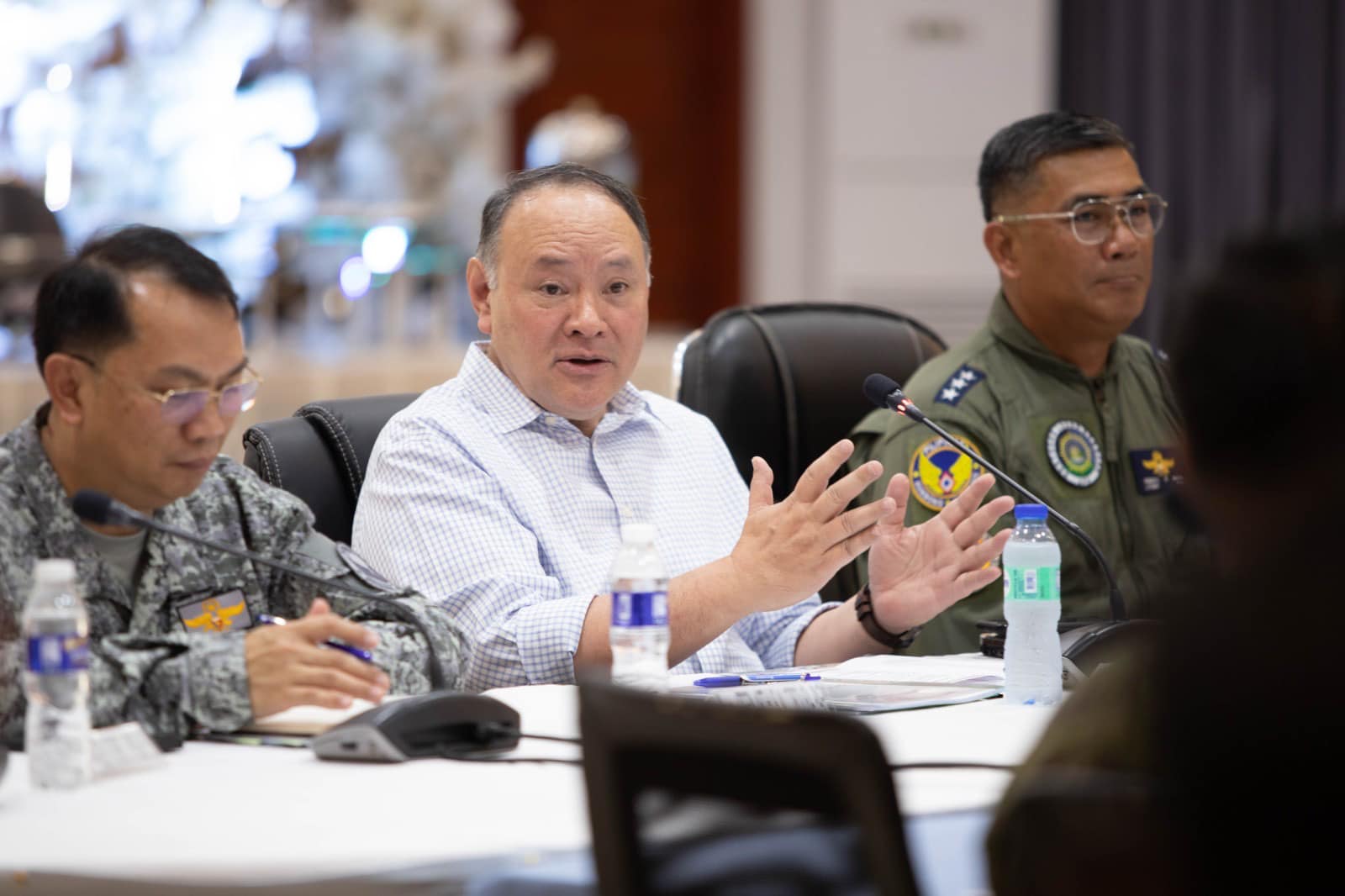News
DND chief ‘concerned’ over proposed MUP pension reforms

FILE: Defense Secretary Gilberto Teodoro Jr. (Photo: Department of National Defense – Philippines/Facebook)
MANILA – Department of National Defense (DND) Secretary Gilberto Teodoro Jr. on Thursday night expressed his reservations over the substitute bill approved by the House of Representatives Ad Hoc Committee regarding reforms on the pension system for military and uniformed personnel (MUP).
In a statement, Teodoro particularly expressed concern over the proposed mandatory contributions for military personnel, which includes those who have already completed at least 20 years of active service.
“The President (Ferdinand R. Marcos Jr.) envisions a carefully transitioned introduction of any pension reform plan so that those in active service will be impacted in the least possible way. The imposition of mandatory monthly contributions without a transition phase will definitely have an impact on our soldiers,” he said in a statement.
Teodoro also said looking after the welfare of military pensioners is part of his duties as DND chief.
“It has been my position that their pensions and entitlements, including 100 percent automatic indexation, shall remain unchanged. Ensuring the non-diminution of their retirement benefits is the least we can do in recognition of their sacrifices to the country,” he said.
Teodoro noted that the Armed Forces of the Philippines (AFP) has a very “substantial distinction” among uniformed personnel due to its mandate of securing the country’s sovereignty and territory.
“The AFP performs a sui generis (of its own kind) mandate emanating from the 1987 Constitution: to secure the sovereignty of the Philippines and the integrity of our national territory. Despite wearing uniforms and ranks similar to that of other uniformed personnel, there is no uniformity in terms of the nature of their duties and responsibilities. The risks they face and the multifarious roles they play in nation-building and in times of crisis are well known,” he said.
Unlike other uniformed services, Teodoro said, military personnel do not receive additional financial support from local government units.
He also pointed out that AFP personnel are governed by strict rules of military law from the moment they start training until retirement.
“The AFP continues to obtain the highest approval, satisfaction, and trust ratings. Adding to their burdens will only serve to distract them from focusing on their crucial mission,” he said.
Among the salient points agreed upon during the Aug. 15 hearing of the House ad hoc committee for the substitute bill to reform the MUP system are the implementation of a 90 percent maximum retirement package based on the base pay of all MUP, raising by 5 percent the previous package for AFP personnel, making Philippine National Police personnel who served less than 20 years eligible for a separation lump sum and fixing the retirement age of all MUP to 57, instead of the present 56.
Under the current system, retirement pensions and benefits of MUP are fully funded by the national government through annual appropriations despite having no contribution from the retirees.
An MUP is also automatically promoted one rank higher upon retirement and the monthly pension is automatically indexed to the salary of personnel in active service.
Other important provisions of the substitute bill are a guaranteed 3 percent salary increase annually for all MUP, two separate pension management systems – one for the AFP and one for civilian uniformed personnel; 50 percent indexation for MUP; and the creation of a window in the pension fund system for disadvantaged pensioners.
Another provision agreed upon by lawmakers is the “phased-in contribution” of 5 percent for the first three years, 7 percent for the next three years, and 9 percent thereafter for active personnel.
New entrants will contribute 9 percent of their base and longevity pay for their pension.
There will also be a larger government counterpart contribution to complete the 21 percent contribution.
This means that the government will contribute 16 percent for the pension of those in active service during the first three years, 14 percent during the fourth to sixth year, and 12 percent for the seventh year and onwards.
Meanwhile, government contribution for new entrants will be at 12 percent.





















